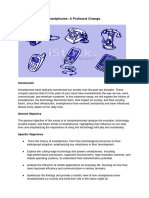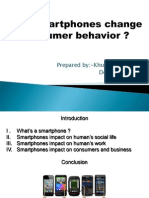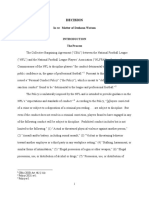0% found this document useful (0 votes)
67 views6 pagesSmartphones and Their Impact On Society
Uploaded by
Hammad K.Copyright
© © All Rights Reserved
We take content rights seriously. If you suspect this is your content, claim it here.
Available Formats
Download as DOCX, PDF, TXT or read online on Scribd
0% found this document useful (0 votes)
67 views6 pagesSmartphones and Their Impact On Society
Uploaded by
Hammad K.Copyright
© © All Rights Reserved
We take content rights seriously. If you suspect this is your content, claim it here.
Available Formats
Download as DOCX, PDF, TXT or read online on Scribd
/ 6























































































